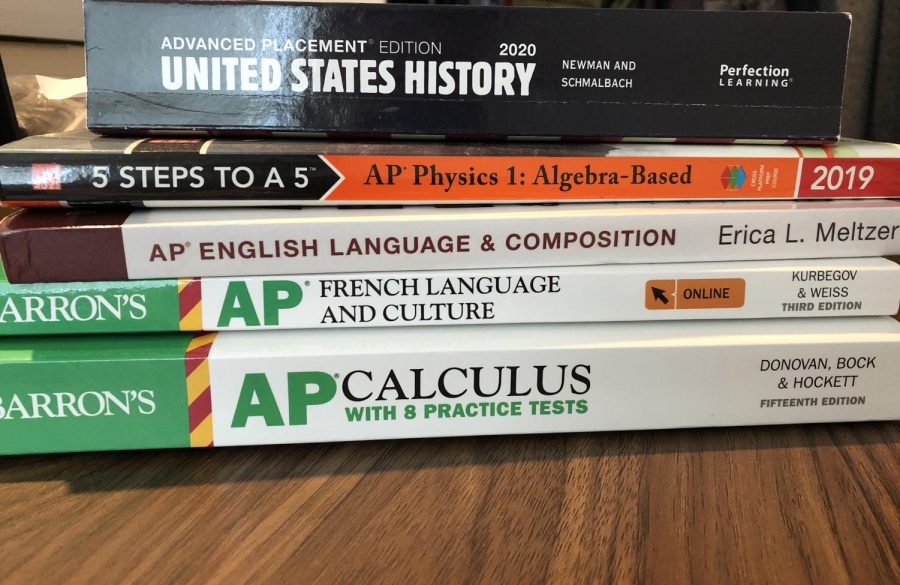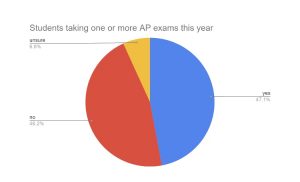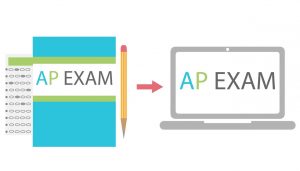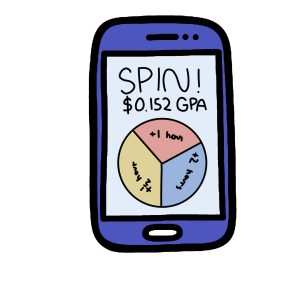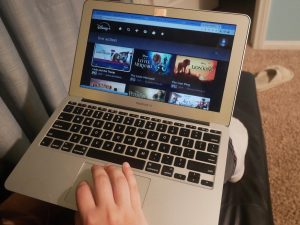The final days of review
BVH students prepare for upcoming AP exams
With AP exams being administered online this year, some students have expressed concerns about their future exam performance. Many are hopeful their classes prepared them to score well.
May 17, 2021
Waiting in line, getting out their materials and walking into the gym was a yearly routine for Bonita Vista High (BVH) students who take Advanced Placement (AP) exams at the end of the school year, a culmination of their year-long learning and test preparation. However, when the COVID-19 pandemic hit, this routine was disrupted. Since most AP exams at BVH will be administered online for the second year in a row, students will not need to leave the comfort of their own homes.
Sophomore and first-time AP test-taker Lannah Garcia described that she uses the resources that the AP College Board website provides, which includes tests from previous years and several practice worksheets in preparation for her upcoming AP World History and AP Spanish Language exams. Garcia mentioned that she completes review assignments that her AP Spanish Language teacher Maria De la Cruz provides to increase her chances of passing the AP Spanish exam.
“I really love my Spanish teacher and I like how she’s preparing us [students for the exam]. We can volunteer to answer the [review] questions and she doesn’t mark us down if we get them wrong because it’s all just practice,” Garcia said. “I [find that] practicing during class time is a lot more helpful than doing it on my own because I can focus more in [the classroom environment].”
Similarly, senior Ellya Hamada has used past assignments to prepare for her AP Psychology, US Government, Computer Science A and Calculus BC exams. Hamada has also taken advantage of other resources such as Princeton review books, instructional National Math and Science Initiative Academic & Science (NMSI) review sessions and past AP free-response questions (FRQ).
“When it comes to FRQ topics, [students] usually expect which ones they’re going to have on the test [by referencing] what [was] on [past] year’s tests. So I try to [predict] what kinds of questions and subjects they [exams] might touch upon and review those as hard as possible. For example, [in] math I try to remember all sorts of formulas and ways to solve problems that the AP [exams] would ask those kinds of questions,” Hamada said.
Hamada and Garcia agreed that studying is crucial to performing well on AP exams. But they also noted that studying is not the only component that matters regarding good test scores: they believe that “having a designated desk” to complete their schoolwork can promote productivity and concentration.
“I need to be able to be away from distractions. For example, I would prefer [my desk] to not [be] in my room because it’s very tempting to not do my work,” Hamada said. “Whereas if I was working in the living room or in an office area that was away from all distractions, it [would] probably be easier to focus.”
For freshman Manuel Rujado, AP Spanish Language will be the first AP exam he is taking. Rujado mentioned that he is currently struggling with familiarizing himself with certain Spanish vocabulary and formalities.
“Since [the AP exam incorporates] Spanish [commonly practiced in Spain], there are certain words that I don’t use in [comparison to] the Spanish I am used to. It’s just the struggle of having to learn new words or new ways of [speaking] in Spanish,” Rujado said.
Similar to Rujado, Garcia is not only a first-time AP test taker but is also taking two AP exams this year. She said that it feels “nerve-wracking” having to take two exams for the first time. Garcia expressed that she is thankful for the exams taking place on different days. Nevertheless, Rujado and Garcia said they plan to overcome these challenges by studying and preparing more diligently.
“I want to not concern myself with getting a five on both of them because I know that would be kind of difficult. I just want to focus on doing the best that I can,” Garcia said. “It’s my first time taking an AP exam, so [my parents] would be proud of me [regardless]. My goal is just to get through [the exams] and prepare myself for next year’s AP exams.”
Rujado also noted that procrastination is never an option for student test-takers. He encourages fellow students to make a conscious effort to set time to study for their exams.
“[For test-takers], don’t freak out. It should be your least priority to freak out because you’ll do fine. [Students should] take their time to study and prepare [for their AP exams], even if it’s just for 30 minutes, 10 minutes or five minutes a day. Doing this should be enough to help you get through the test,” Rujado said.
On the other hand, Hamada expressed that distance learning has taken a toll on her ability to participate, concentrate and stay focused during live class review sessions. She added that some of her peers share this concern due to varying living conditions and learning environments.
“Because of [students’] different types of [living situations], it’s really hard for us to be able to pay attention in class. For example, being in such a destructive [and] distracting environment [is difficult], especially when it’s not necessary to have our cameras on and participate,” Hamada said. “I think a lot of my classmates can relate to that situation where it’s really hard to be motivated.”
In addition, Hamada explained that as a senior, getting through high school and graduating at the end of the year motivates her to stay resilient in spite of the COVID-19 pandemic. She emphasized the importance of “finishing off strong” regardless of the scores students ultimately receive.
“My advice to those taking AP exams is to not to worry too much about it and just do the best you can because the more you stress about it, the more it’s going to be detrimental to your preparation,” Hamada said.

